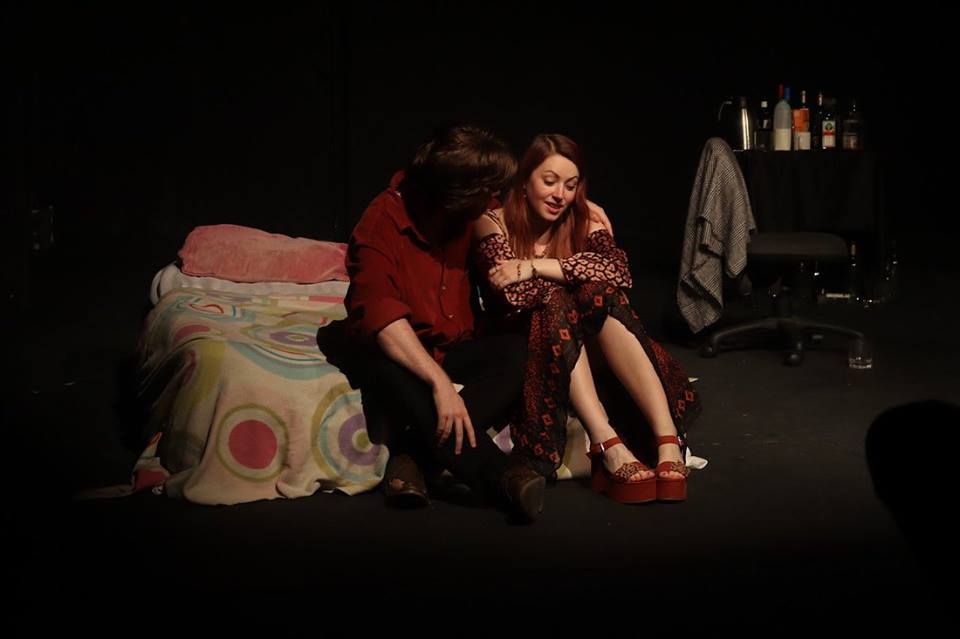The sparring egos and marital spats of Fleetwood Mac in their pomp are part of rock folklore, and to some extent are still being played out today. Well-documented, then, but the tensions remain ripe for theatrical exploration as this Nottingham-based company have opted to do.
Writer Emma Summerton has zoned in on the making of the pivotal Rumours album, and put producer Ken Caillat (played by Sam Morris) in the role of narrator. A young cast – it’s possible the Mac are not just their parents’ generation, but possibly their grandparents’ – mill around a set that reads “sex” (a rumpled bed), “drugs” (a table for drinks, and one for cocaine) and “rock ‘n’ roll” (keyboard, guitar and studio paraphernalia) – a nice design touch. Morris sticks on a vinyl copy to play as a constant backdrop, and we’re away.
It becomes clear early on that these relationships are not just on the brink of disintegration, they’re already disintegrated, which doesn’t leave much room for a story arc. In the beginning/middle/end of things, this is pretty much all end, with all the recriminations and accusations that entails. Such tender moments as do exist between the McVies and Buckingham/Nicks are so indistinguishable from the squabbling that they fail to really evoke the chemistry that may once have existed.
Two scenes do fire a little better – there’s good sisterly chemistry between Nicks (Emma Pallett) and Christine McVie (Boo Jackson) in their shared scene, likewise Fleetwood (Arnauld Lacey) explaining to Buckingham (Joe Strickland) what Nicks is trying obliquely to tell him about their relationship. Each member also gets their own monologue, which works well structurally, even if, in terms of successfully separating the distinct personalities, it’s more of a mixed bag.
The casting plays some part in that. These characters are well-known figures with identifiable stylistic traits. Not everyone’s the best of fits. Mick Fleetwood projects more like a friendly techie than visually striking band figurehead; Nicks is sometimes more valley girl than shimmering mystic gypsy. Costumes don’t aid matters. McVie’s (Arthur Mckechnie) hawaiian shirt and shorts are more Benidorm than 1970s Cali. Only Buckingham really looks and feels the part (minus some slightly overdone gum-chewing), although Christine McVie, as the subtlest and most enigmatic of the five is conveyed well by Jackson.
Issues aside, the company acquit themselves well. This is well-rehearsed, clearly directed and nicely-staged, none of which is a given at the Fringe. It’s just that for a familiar story, so evocative of its era, it doesn’t capture the fireworks in a new or palpable way.
